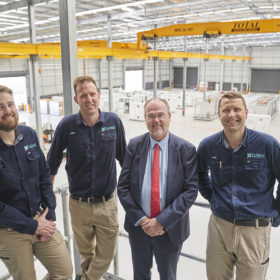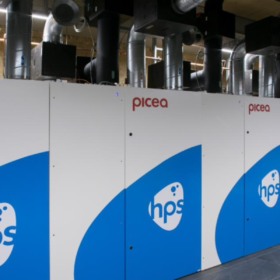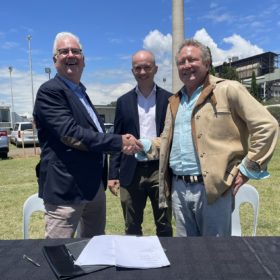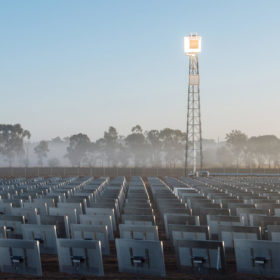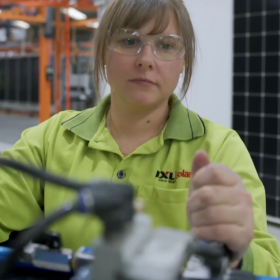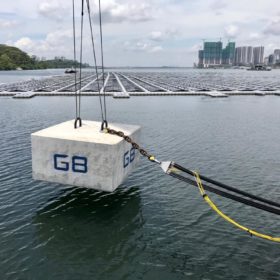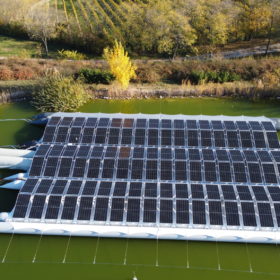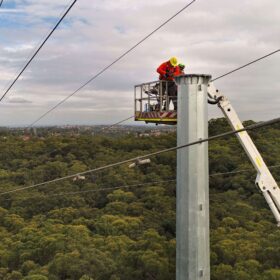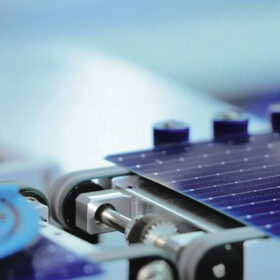Stand out new facility for WA’s in demand stand-alone power systems
Perth-based Hybrid Systems Australia has opened its new much-expanded facility in the Western Australian capital ahead of significant expansion in the outlay of its stand-alone power systems to regional and remote parts of the state.
Grid stability and 100% renewables
New research from Stanford University professor Mark Jacobson seeks to remove any doubts about grid stability in a world powered entirely by renewable energy. The latest study models 100% wind water and solar powered grids across the United States, finding no risk of blackouts in any region and also broad benefits in cost reduction, job creation and land use.
Saturday read: China’s path to 100 GW
China is once again the focus of attention across the global solar PV industry. The country’s manufacturers have had a turbulent 2021, but domestic demand remains strong, particularly from the booming residential rooftop segment. Despite the supply challenges, China will likely reach 50 GW this year and possibly even 100 GW next year. Given the dynamic market and policy landscape, pv magazine publisher Eckhart K. Gouras recently caught up with long-time China solar expert Frank Haugwitz, the founder of the Asia Europe Clean Energy (Solar) Advisory (AECEA).
New solution to store residential, commercial PV electricity as green hydrogen
Germany’s Home Power Solutions has developed a hydrogen storage solution with a capacity of up to 15,000 kWh. The Picea system stores excess electricity from rooftop PV systems in the form of green hydrogen.
AGL links with Fortescue to flip NSW coal generators to green hydrogen
Two of Australia’s most prominent energy players, AGL Energy and Fortescue Future Industries, today announced plans to repurpose infrastructure at AGL’s Hunter Valley coal stations to turn them into green hydrogen hubs.
New tool to understand component failure rate in PV-related fires
Scientists have developed a new model based on fault tree analysis to evaluate the frequency of fires caused by rooftop PV systems and assess system safety and reliability. They claim that the new tool has the potential to identify fault linkages in systems, highlight failure patterns before they arise, and compare multiple designs for safety.
New tank design promises to significantly improve the reliability of thermal energy storage
A consortium including Australian concentrated solar thermal power company Vast Solar has filed to patent a new tank design for thermal energy storage systems. The new design, it says, substantially mitigates the risk of tank failures which have been identified as one of the key shortcomings of the economical storage technology.
5B acquires Adelaide manufacturing plant ahead of global gigawatt-scale push
Sydney-based solar pioneer 5B has today announced it will acquire IXL Solar’s Adelaide-based manufacturing business, with pv magazine Australia told the purchase will see 5B buy everything but the name, effective immediately.
Singaporean FPV firm targets offshore expansion plans
Floating PV is a growing niche in the solar sector, but its offshore segment has proven more difficult to activate, largely because of the difficulty of open-water energy generation. Nevertheless, the potential of offshore floating PV is almost unlimited, and one Singaporean firm, G8 Subsea, is looking to leave the safety of harbours and reservoirs.
Puffer fish inspired floating PV structure
With a new system for floating photovoltaic power plants, engineers from Germany want to make the application cheaper, higher-yielding, and safer. The result is somewhat reminiscent of a pufferfish, which also gave the system its name.
